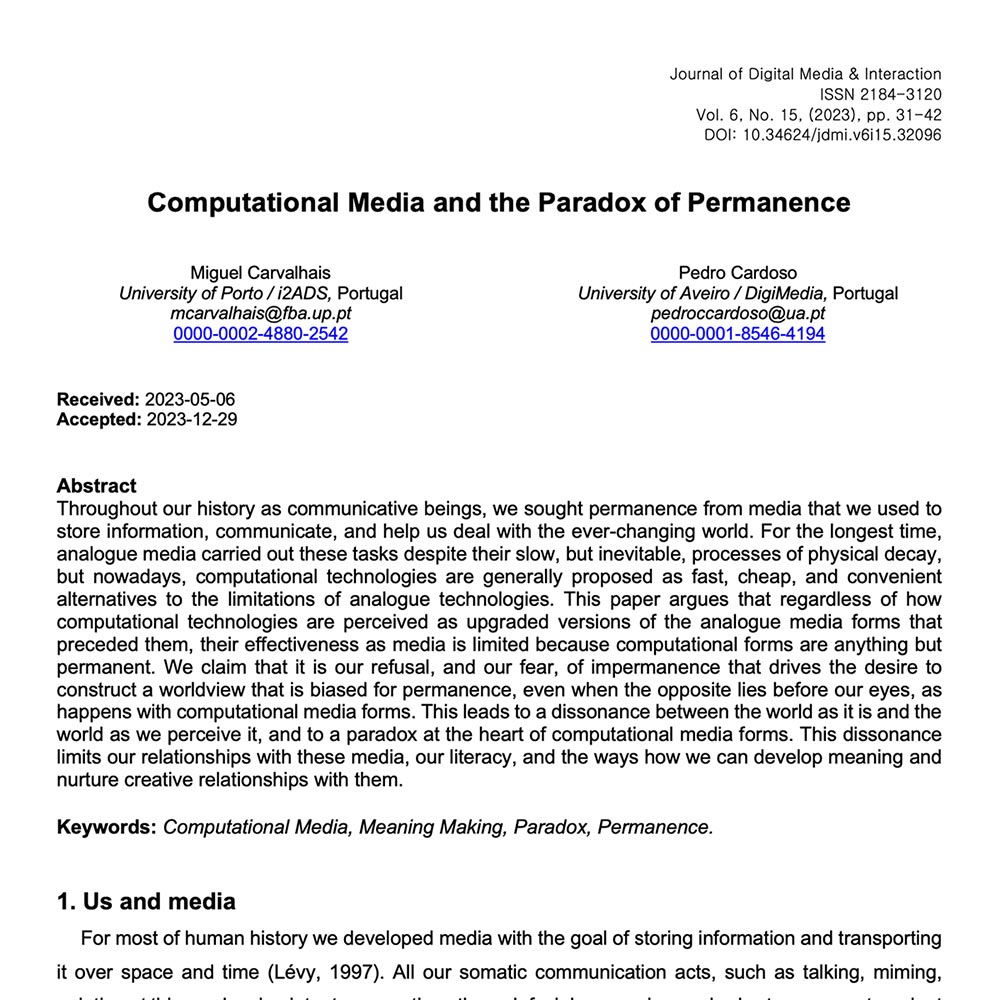Computational Media and the Paradox of Permanence

Throughout history we have sought permanence in media, to store information, communicate, and help us deal with an ever-changing world. Analog media have carried out this task despite their slow, but inevitable, processes of physical decay. Today computational media are seen as fast, cheap, and convenient alternatives for these tasks, even if they are quite the opposite, as they are anything but permanent. This paper argues that it is our refusal, and our fear, of impermanence that drives our desire to construct a worldview that is biased for permanence, even when the opposite lies before our eyes, as with computational media. This leads to a dissonance between the world as it is and the world as we perceive it, and to a paradox at the heart of computational media forms. This dissonance limits our relationships with these media, our literacy, and the ways how we can develop creative relationships with them and develop meaning.